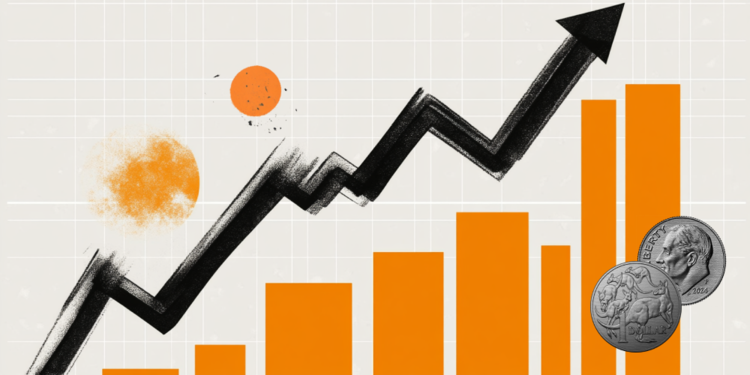In recent years, weather events such as heat waves, floods, hurricanes and forest fires have occurred more often in various regions of the world, raising the debate about the impact of climate change.
Floods in Rio Grande do Sul, which took place at the end of April last year, fires in Los Angeles in the United States, heat waves with intense thermal sensations, such as those that hit Rio de Janeiro earlier this year, are some examples.
“When we talk about extreme climate events, we are talking about very intense and abundant rain, dry or very intense heat wave that determines the risk of fires; but also hurricanes, storms, among others,” explains Jose Marengo, climatologist and general research and development coordinator of the National Center for Natural Disasters and Alerts (Cemaden) CNN .
According to Marengo, all these phenomena are part of the climate system and always happened. However, in recent decades, there has been an increase in the intensity and frequency of events in all regions of the world.
“It is possible, for example, a wave of heat in an area where there is no population. This is a meteorological event. But when there is a heat wave in an area with particularly vulnerable population, this event becomes extreme and kills people, such as children, the elderly and people with chronic diseases. That is, it becomes a disaster,” he says.
“This combination of extreme events with increased vulnerability of the population has grown a lot in recent years. The extremes have always been present, but there is this tendency to increase worldwide. But the vulnerability of the population in ecosystems is also increasing,” he adds.
Global warming as the main factor of extreme climate events
According to Tatiana Oliveira, WWF-Brazil’s public policy expert, the increase in the frequency of extreme climate events is related to global warming. “In this case, there is the intensification of climate and meteorological dynamics already present in a given locality,” he says to CNN .
Given this, climate change should be viewed as a problem not only of the present but also from the expert’s view as well.
“It is no use making all possible and imaginable efforts to face extreme climate events without thinking that we need to start the reduction of greenhouse gases emission, both from fossil fuel burning and those that come from forest burning and biomes degradation,” he adds. “We need to intensify the action to combat the emission of greenhouse phases and air pollution.”
Consequences go beyond environmental impacts
Extreme climate events have various impacts on the environment, but the consequences go beyond. Floods in Rio Grande do Sul, for example, brought socioeconomic impacts, as well as the effects on the mental health of the affected people.
“The entire insurance industry was affected by the number of properties and cars that were destroyed. The airport was closed for more than a month. There was a loss of revenue for the state and the city. And there is still one thing that is generally not considered: the psychological impact on the population,” says Marengo.
Oliveira also adds the impact on the infrastructure of cities, with the destruction of highways, railways, ports, airports and houses. “This equity issue is very important because it is generating a sharp process of reinforcing social inequalities in Brazil and worldwide,” he ponders. “Climate change, when not appropriately addressed, are an important vector of what we have called environmental racism. That is, it has the ability to deepen and be an accelerator of social inequalities,” he adds.
The expert also cites effects on the health and well-being of the population. “We have seen with the pandemic how climate change may be closely related to the appearance of new diseases. And we have also seen the effects of heat waves on the elderly and children, causing malaise and overload on the health system,” he says.
Higher prevention and adaptation infrastructure is critical
For Marengo, the main measure to reduce the frequency of extreme climate events and mitigate their impacts is to reduce greenhouse gas emissions, and reduce deforestation worldwide. For this, it is necessary to take effective measures to comply with what was defined by the Paris Agreement, adopted in 2015 to strengthen the global response to climate change.
“Global warming is a natural process. We have been to warmer and colder times, but human action is increasing this warming,” says the expert. “If this heating is reduced, with the stabilization of CO₂ emission, for example, we do not exceed 1.5 ° C [acima do valor pré-industrial, limite estabelecido pelo Acordo de Paris e que foi ultrapassado em 2024 pela primeira vez]”He adds.
However, it is also essential to improve the weather forecast systems to alert the population about the intensity of events such as rainfall, hurricanes and heat waves. “If an extreme rain is going to happen, we have no way to stop it. So we need to know where it will rain, how much it rains and at least have an approximate idea where this rain can generate disaster. So the population is ready to evacuate and be relocated, giving it the way to save,” says Marengo.
Oliveira also adds that it is necessary to invest in prevention, increasing the budget for risk and disaster management. “In the latest budgetary multiannual plans, this feature has fallen from tens of billions to a dozen billion reais, at a time when we most need these resources,” he says.
The expert also cites the Paris Agreement, stating that greater balance and more robust commitments from countries for mitigation and climate adaptation actions are required.
Light reduction in meat production would already revert climate change
Has this content been originally published in extreme weather events becoming more frequent? Understand on CNN Brazil.
Source: CNN Brasil
Charles Grill is a tech-savvy writer with over 3 years of experience in the field. He writes on a variety of technology-related topics and has a strong focus on the latest advancements in the industry. He is connected with several online news websites and is currently contributing to a technology-focused platform.







